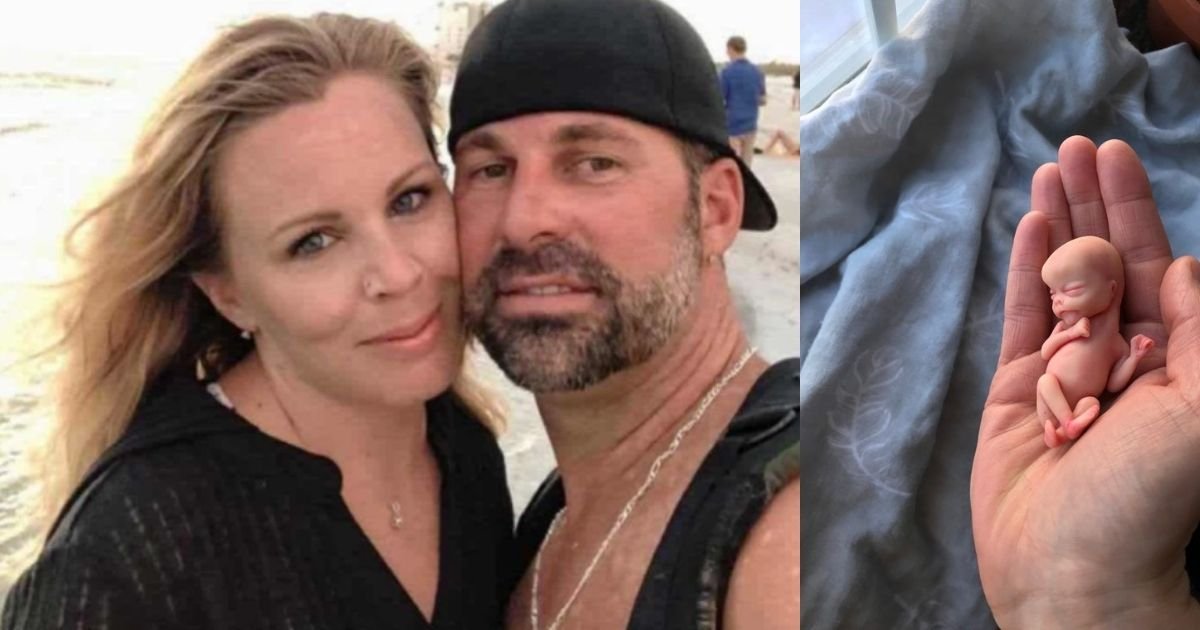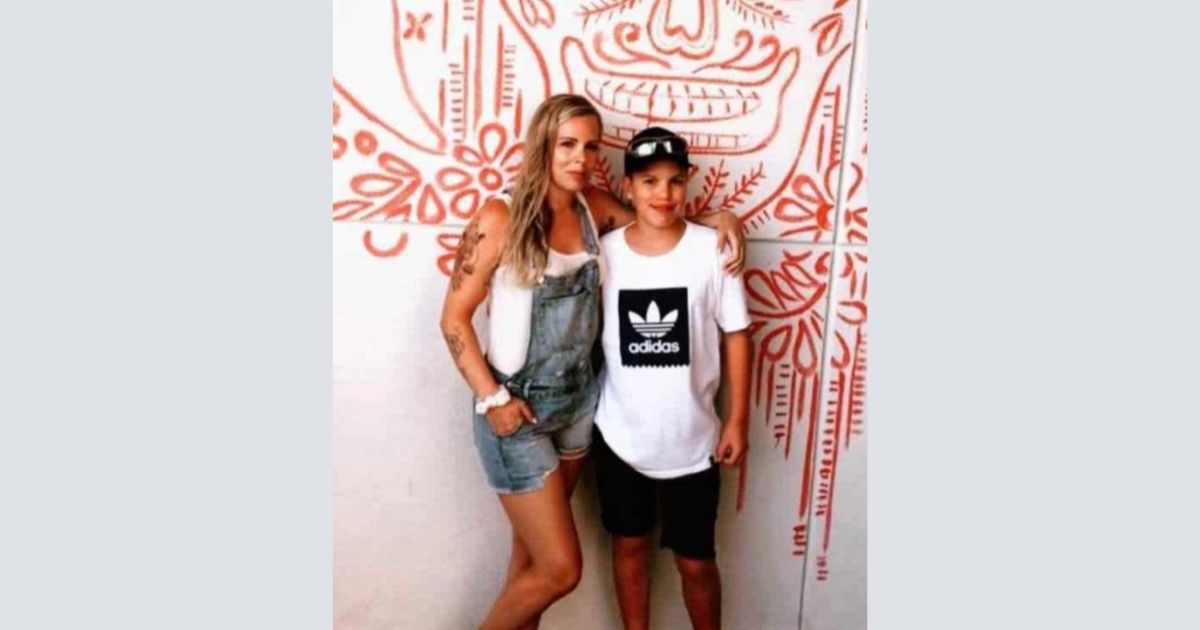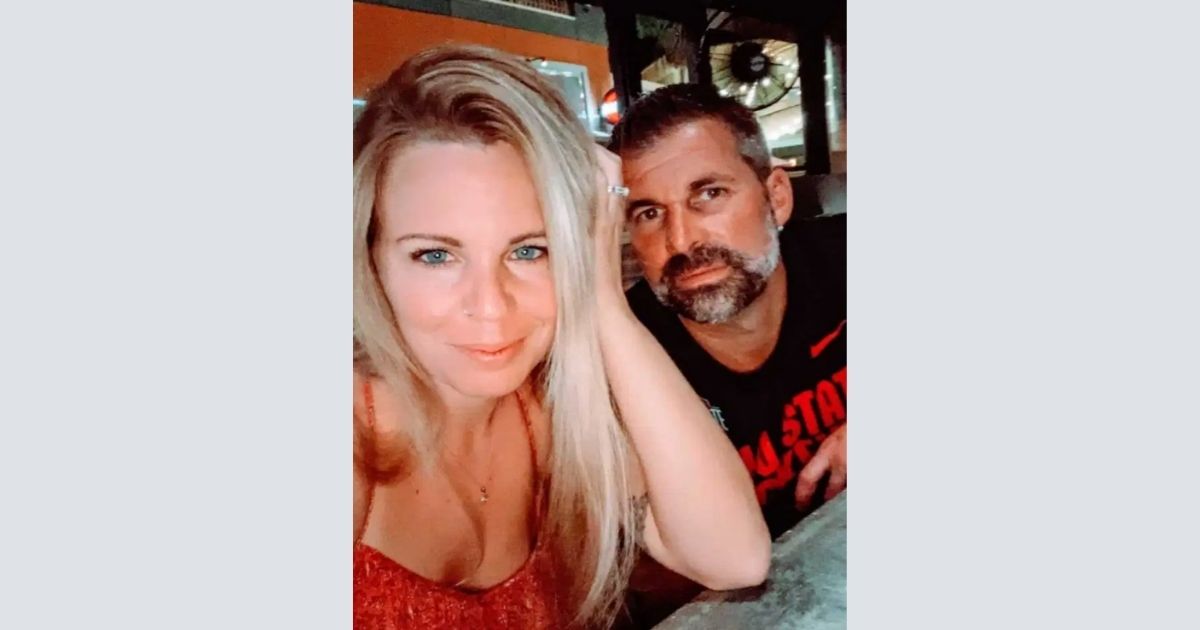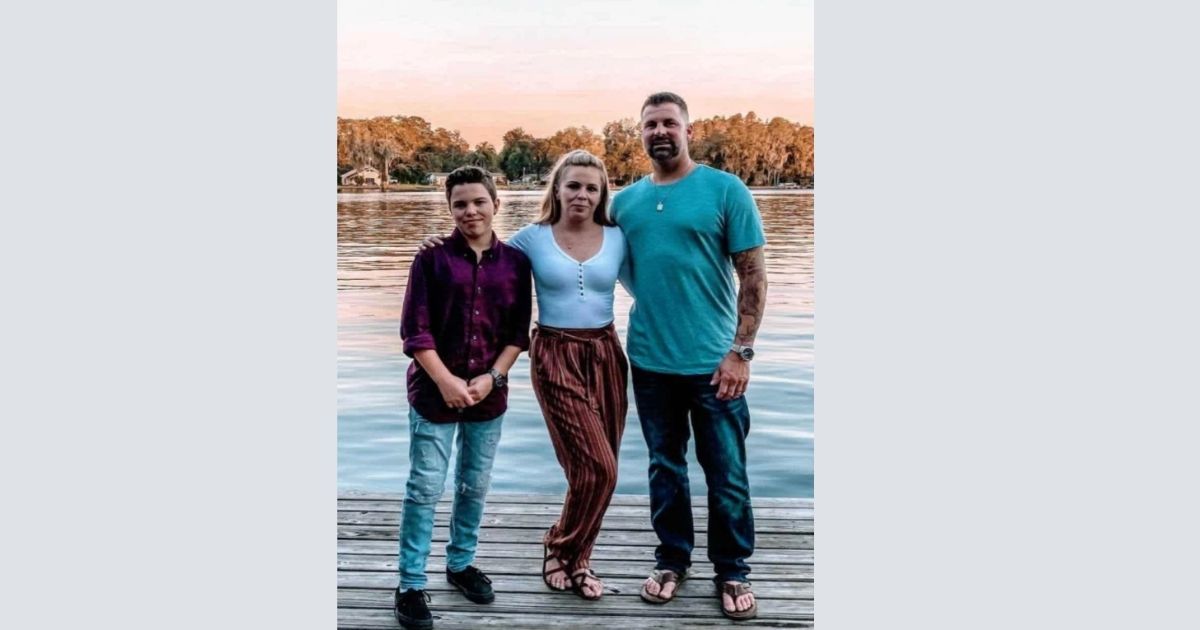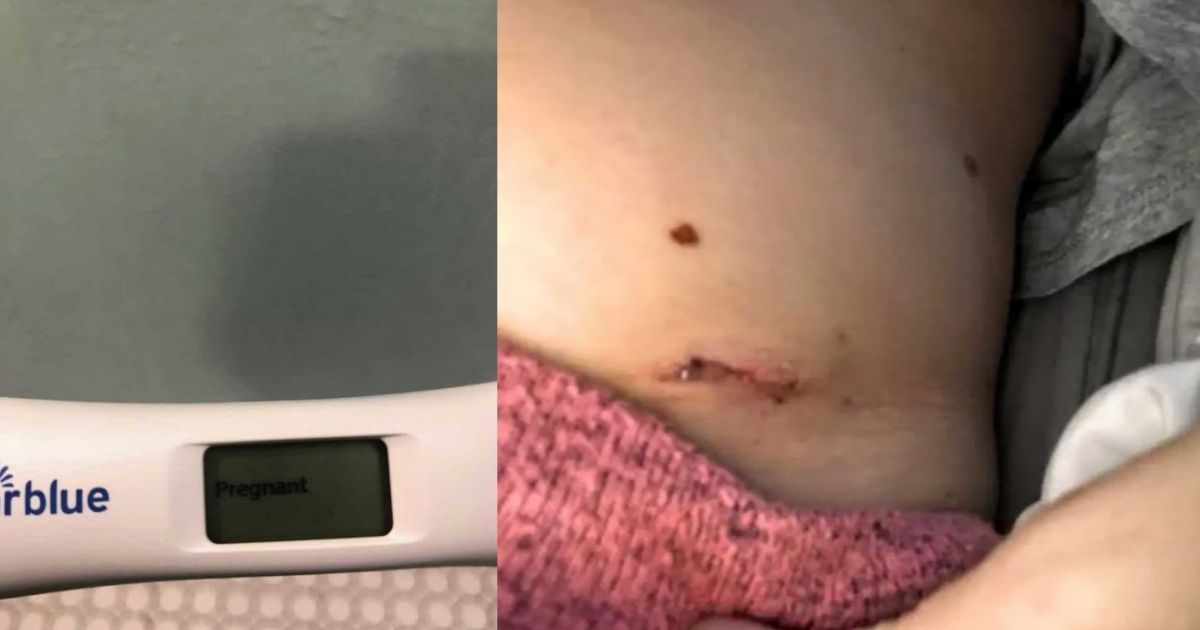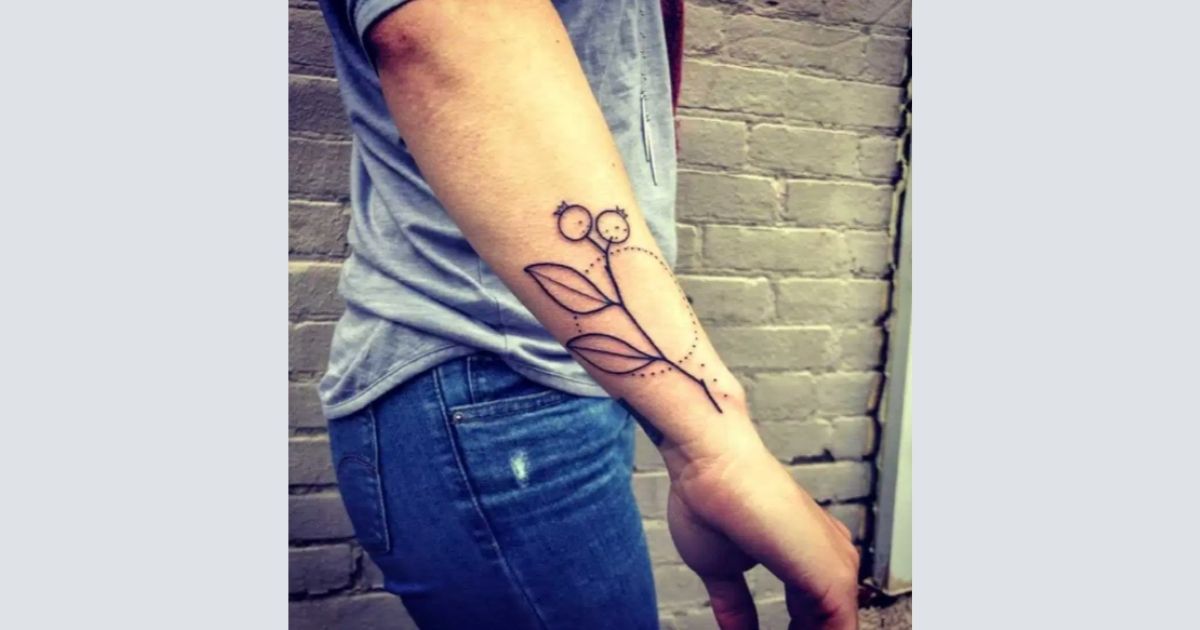In an article published by Love What Matters, Jamie Reichenbach from Florida shared her story in a personal essay about her 22 miscarriages.
Jamie, who has a 12-year-old son, said that she and her husband would plan their entire schedule around being pregnant, but it always ended the same painful way.
Jamie admitted that she felt like she was pregnant every other month and explained how they started planning their lives based on possible miscarriages.
In March 2018, the pregnant Jamie said she felt that the familiar cramps and was a sign of another failed pregnancy.
Jaimie then headed into ‘urgent care’ to confirm her miscarriage but she was surprised to know that ‘the baby was fine.’ That until she was told that the baby was growing in her fallopian tube, so she was rushed to hospital where her nightmare began.
“I was so humiliated and so alone, but I oddly felt comfort in knowing the longer I stayed in the hallway, the longer I got to keep my baby,” Jamie wrote.
After an hour of waiting, Jamie said that two student doctors approached her bedside and told her she had an ectopic pregnancy. They went on to say that she had to terminate the pregnancy and that she had two options – surgery or an injection of methotrexate.
“I burst into tears and they just stared at me. I knew I was making them uncomfortable and it just upset me more. They wanted me to make a decision right then!” Jamie recalls. “I wanted to scream at them to leave, but that would have required me to come out from underneath the blanket and to speak. They finally left after what was probably only a couple of minutes, but felt more like an hour.”
Jamie was shaken and broken and explained she that could die if she refused to terminate the pregnancy. This would mean “leaving my son without his mother,” and that just “wasn’t an option”.
The broken mother wanted the surgery – despite being her life at risk – but taking her doctor’s advice, she decided to go for the shot of methotrexate.
The shot is a chemotherapy agent and immune-system suppressant and it’s used to treat cancer, autoimmune diseases, ectopic pregnancy, and medical abortions.
After being sent home, Jamie was “more broken than ever”, but despite everything, she remained optimistic.
“I had lost so many babies before, and as messed up as it is to say, this was my normal…lose a baby and get back to life,” she said.
Jamie is forced to carry on with her life and said that “every day was hard” but she “lowly started to get back to normal and find things to keep her mind busy.
After two weeks, Jamie said she remembered waking up with the worst pain she had ever felt. She began to sweat and the color drained from her body so she woke her husband and they began to panic.
“The look on his face when he looked at me confirmed it – I was definitely dying. He was in a panic!” she said.
The couple arrived at the hospital where she was told “it’s probably an ovarian cyst”, but having had them before, she knew this was different.
Jamie explained it was an ultrasound that revealed “the baby I lost was still alive”, the methotrexate did not work and the baby had grown in size, causing her “tubes to rapture”.
“So here we were again, having to terminate the same pregnancy for a second time to save my life, except this time it wasn’t preemptive,” Jamie said. “This time, my life was in serious danger and emergency surgery was the only option.”
It took an entire year for her to accept what had happened and she was finally able to “feel again.”
“I wasn’t just grieving baby 23, but the fact that I’d never allowed myself to grieve the 22 before,” she said. “Baby 23 didn’t break me. Not giving myself the time and space to grieve each and every loss, forcing myself to be strong, let the pressure of society force me back to ‘normal’ when I wasn’t ready to be, and my need to be okay – these are what broke me.”
Jamie revealed that she still has days where she’s “hit with waves of sadness and anger” but she’s learned to accept them.
“We don’t have to force ourselves to be okay to make others comfortable,” she said. “We don’t have to protect people from our feelings. We deserve to allow ourselves to experience our loss for what it is.”
“An unimaginable tragic loss, worthy of our heartache, worthy of our tears, and worthy of our healing.”


